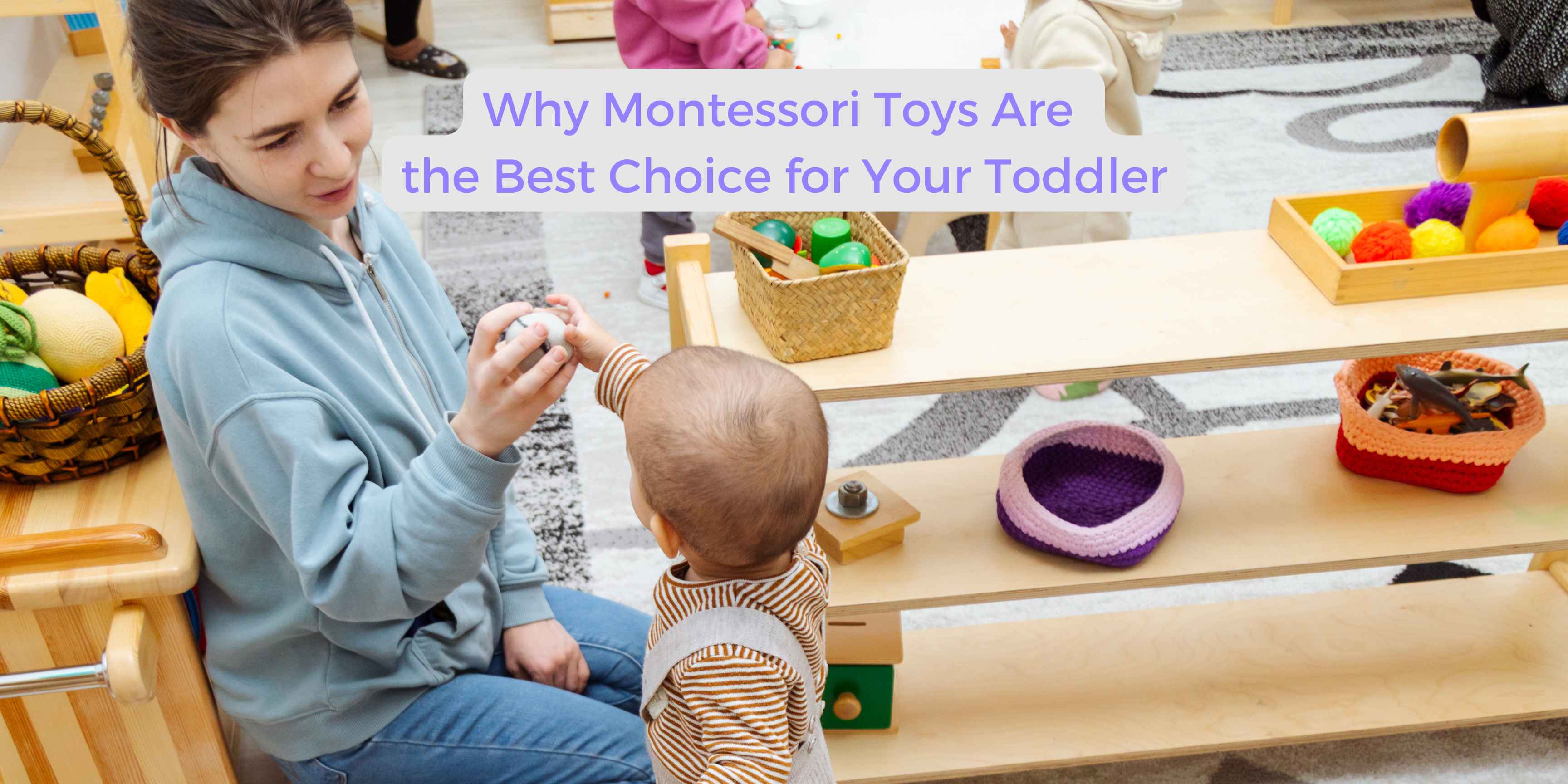As parents, we want to raise confident, independent, and capable children. One of the best ways to do this is by allowing them to take part in everyday household tasks.
Following the Montessori method, even very young children can be active participants in family chores, helping them develop practical life skills, build confidence, and foster a sense of responsibility.
Here are five easy ways to get your child involved in household chores the Montessori way—allowing them to learn, grow, and thrive in an environment that encourages independence.
1. Cooking in the Kitchen
Involving your child in meal preparation is a fantastic way to teach practical life skills. Whether it's washing vegetables, stirring ingredients, or setting the table, kids love to feel like they’re part of the action. Not only do they get hands-on experience, but they also learn about nutrition and healthy eating habits.
Montessori Tip: Give your child tools that are designed for their small hands, such as child-sized utensils and cutting boards. These Montessori-inspired kitchen tools help develop their fine motor skills while ensuring they’re safe.
Try This: Start with simple tasks like washing vegetables or mixing ingredients in a bowl. As they gain confidence, they can graduate to more complex tasks, such as cutting soft fruits with a child-safe knife or spreading toppings on sandwiches.
Product to Explore: Kids Cooking Set
2. Sorting and Folding Laundry
Laundry day can turn into a fun learning experience with your child’s help. Sorting laundry by colors or matching socks is not only engaging, but it also helps develop their sorting and categorization skills, which are essential for cognitive development.
Montessori Tip: Start by showing your child how to sort clothes by color or type. Once they understand, let them try on their own. When it comes to folding, give them small, manageable items like washcloths or socks to fold first. Gradually, they can learn how to fold larger pieces like t-shirts.
Try This: Make laundry time a fun game! Ask them to "find all the red socks" or "fold the towels as neatly as possible." This gives them a sense of accomplishment and keeps them engaged.
3. Sweeping and Cleaning
Children naturally want to help clean up messes, especially if they see you doing it. Giving them their own child-sized cleaning tools can make sweeping and wiping surfaces an exciting task. It’s a great way to teach them the importance of maintaining a clean and organized space.
Montessori Tip: Equip your child with a small broom, dustpan, and cleaning cloths that fit comfortably in their hands. Encourage them to sweep crumbs or wipe down their play area after activities. This helps them take ownership of their space.
Product to Explore: Kids-cleaning-set
Try This: Let them sweep a specific area of the house, like the kitchen floor after a meal. Show them how to use the dustpan to collect dirt, giving them a complete start-to-finish task.
4. Watering Plants and Caring for the Garden
Taking care of plants is a wonderful way to teach children about responsibility, patience, and the natural world. Whether it's watering houseplants or helping in the garden, children can feel connected to nature and learn about the life cycle of plants.
Montessori Tip: Give your child a small watering can and show them how to water plants gently. Start with indoor plants that are easy to reach, or let them help outside by planting seeds or harvesting herbs.
Try This: Let your child choose their own plant to take care of. Explain how plants need water and sunlight to grow, and let them take responsibility for watering it every day.
5. Setting the Table
Setting the table for meals can be a rewarding task for young children. It helps them practice sequencing (placing items in order), fine motor skills, and responsibility. Plus, they’ll feel proud to contribute to family mealtime.
Montessori Tip: Teach your child where each item (fork, knife, spoon, napkin, plate) belongs and have them set up a small child-sized table or even help with the family table. This task gives them a clear sense of order and routine.
Try This: Make it a daily ritual! Allow your child to set the table every evening, starting with a few items and gradually adding more responsibility as they become more confident.
Why Involving Children in Chores Is Important
In the Montessori approach, children are viewed as naturally curious and capable. By involving them in household tasks, we give them opportunities to learn through hands-on experience, develop independence, and take pride in their work.
When children are allowed to contribute to daily chores, they build self-confidence and feel valued as members of the household. Plus, these activities teach them essential life skills that will benefit them for years to come.
Get Started Today with Montessori-Inspired Tools
At Seaside Montessori, we believe that every child deserves the tools and environment to help them grow into independent, confident individuals. Our Montessori-inspired household products are designed with your child’s development in mind, making it easier for you to involve them in everyday tasks.
Ready to empower your child? Explore our collection of Montessori tools for kids today!
Bonus: Free Download – Montessori Age-Appropriate Chores Checklist
Need some inspiration for getting your child started with household tasks? Download our Free Montessori Chores Checklist to find age-appropriate chores for your little one.








Leave a comment
All comments are moderated before being published.
This site is protected by hCaptcha and the hCaptcha Privacy Policy and Terms of Service apply.